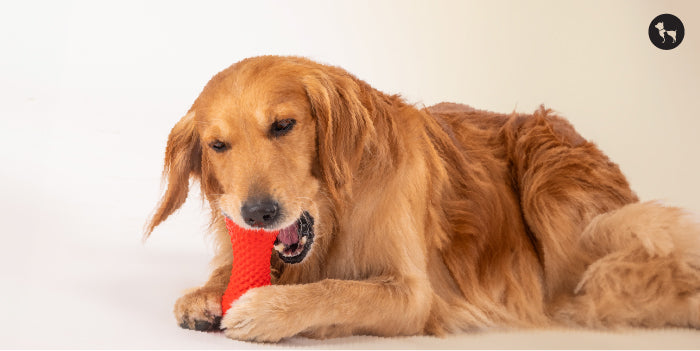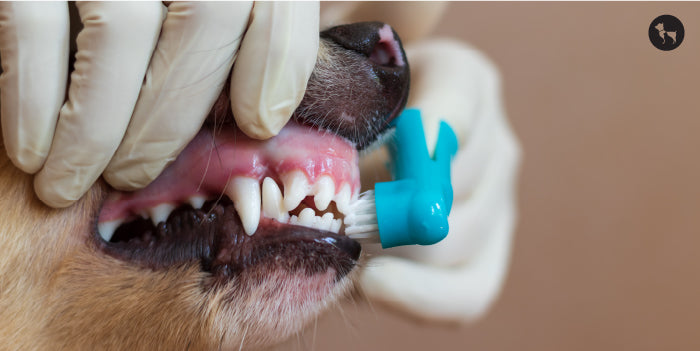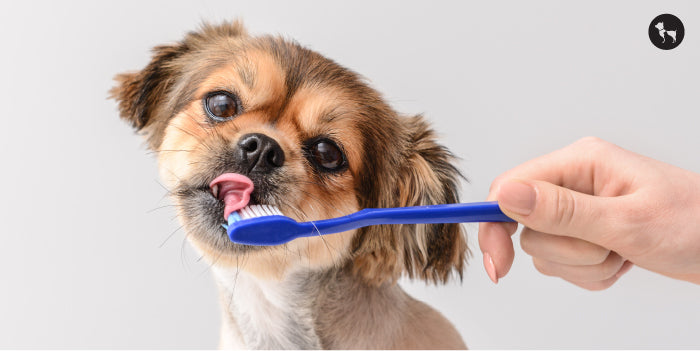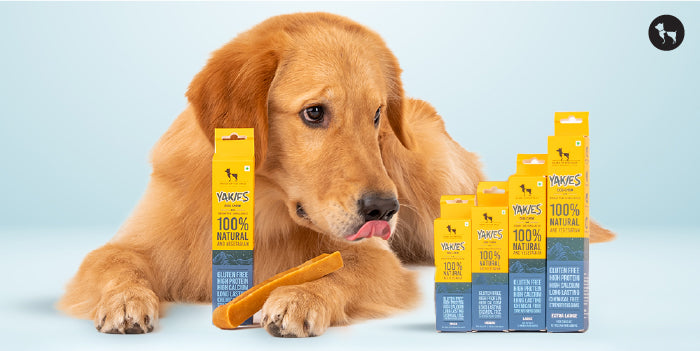
Has an enthusiastic dog kiss ever made you question your life choices and made you think “How can something so adorable smell so terrible?” If yes, fear not, you are not alone.
In the big picture of pet parenthood, dental care often takes a back seat. We get it. Life with pets is a chaotic juggling act of fur, love, and the occasional squeaky toy-induced headache. But what if we told you that your pet's dental health is more than just a matter of avoiding offensive odours? Fellow pet parents, let’s dive into the topic to know why those pearly whites matter more than you think.
In this blog, we will discuss the importance of pet dental care and what measures can you take to ensure that their teeth stay healthy.
|
Table Of Contents: - |

Unlike humans, pets can't send you a dental SOS via text or vocalise their discomfort in words. Instead, they drop hints, subtle in their paws, whiskers, and nudges that speak volumes about their dental well-being. So, the next time your furball comes in for a snuggle, take a quick peek at the signs that indicate your pet's smile needs saving.

Those teeth aren't just for show. Some pet parents think a little bad breath or a hint of tartar is no biggie. However, dental problems can have serious consequences for your pet's health. Here are some of the reasons why dental care is so important:
Periodontal disease is one of the most common health issues in pets. It is a bacterial infection that may cause chronic pain, gum erosion, and loss of bone and teeth. If left untreated, it can lead to tooth loss, bone damage, and even systemic infections that can affect other organs in the body.
Pets are great at showing love, but not so much at telling us when something hurts, especially when it comes to their teeth. The tricky part? Dental problems can be really painful, yet our furry friends keep going without clear signs of distress. Therefore, regular dental checkups can help in early diagnosis.
It is crucial to note that poor dental health contributes to many other health problems as well. Heart issues, kidney issues, and diabetes are some of the problems your pet might have to go through due to poor dental health. Taking care of your pet’s oral health can help prevent such diseases.

Admit it, convincing your pet to embrace toothbrush time is like negotiating a treaty with a tiny, fur-covered diplomat. We totally understand the struggle but it is important.
Regular brushing is one of the most effective ways to prevent dental problems in pets. You can use a soft-bristled toothbrush and pet-friendly toothpaste to brush your pet's teeth daily. Make sure you brush gently at first, and then increase the amount of time you spend brushing each day over time. It's important to be gentle and patient, as some pets may be resistant to having their teeth brushed.
HUFT Tip: Pets can feel discomfort while you are brushing their teeth so, to make this a positive experience make sure to reward them after every session with tasty and healthy treats.
Shop for treats: Dog treats | Cat Treats
Just like those regular vet visits, make sure to make it a habit to include their dental checkups as well. Your vet will examine your pet's teeth and gums, check for signs of periodontal disease, and recommend any necessary treatments. They may also recommend professional dental cleanings, which involve scaling and polishing the teeth under anaesthesia.
There are several dental chews and chew toys that help maintain your pet’s dental health. These treats and toys are specifically designed in a way that helps keep the pet’s teeth clean and removes tartar buildup.
Try out HUFT Yakies Natural Chews or explore more treat options.
Looking for chew toys for dogs? Check them out here.

There are also some specifically formulated pet food options that help maintain dental health. These diets are specifically built to remove plaque and reduce tartar buildup and some diets also contain enzymes that help reduce the plaque.
At times, regular brushing and dental care at home can still require you to visit a professional. Getting your pet’s teeth cleaned professionally from time to time makes sure that no problems go unnoticed. Your vet can also recommend how often you should clean your pet’s teeth, based on their age, breed, and overall dental health.
Yes, it’s a fact. There is a certain bacteria that causes plaque to form. At times, this bacteria can enter your pet’s bloodstream. Once it travels through your pet’s body, it can spread to the heart, kidney, and liver. This process is known as bacteremia. Bacteremia can make your dog very sick as oftentimes it leads to organ failure. Hence, by focusing on your pet’s dental health today, you can avoid any major health issues in the future.
In the paw-erful tale filled with love and joy, let's not skip the chapter on dental care. Ignoring it now might mean trouble later. Regular vet checkups, a bit of tooth brushing, throwing in some dental chews and toys for the fun factor, and topping it off with a diet that's kind to those pearly whites is the key. Prioritise their dental health, and ensure your pet's joy stretches from ear to ear.
If left unchecked, a host of bacteria start breeding in your pet’s mouth. These bacteria accumulate over time and eventually develop into plaque. The plaque then meets other minerals and hardens within two to three days. Calculus then forms on the teeth and gets more difficult to scrape away.
Most of the buildup and dental diseases occur below the gumline. This is a hard-to-reach area and a thorough dental evaluation & cleaning are done by putting your pet under anesthesia.
A vet or a board-certified veterinary dentist should perform dental procedures on your pet. They take care of cleaning, adjustment, filing, extraction, or repair of your pet’s teeth and all other aspects of oral health care.
Pets feel threatened or uncomfortable when a vet tries to perform any procedure in their mouth. This can lead to sudden reactions like moving or trying to escape or extreme reactions like biting. To perform any dental procedure successfully and without any incident, vets use anesthesia.
To avoid dental disease, maintain good overall health, and live happy, pain-free lives, cats need good dental health. Regular dental care, including daily tooth brushing, dental rinses, and dental chews are the key to maintaining your cat's dental hygiene.
If you're comfortable doing it yourself, you can scrape simple plaque off your dog's teeth using a special dog toothbrush or one with soft bristles. You can also consider adding dental chews into your dog’s routine. Professional dental cleanings may be necessary for stubborn tartar problems.